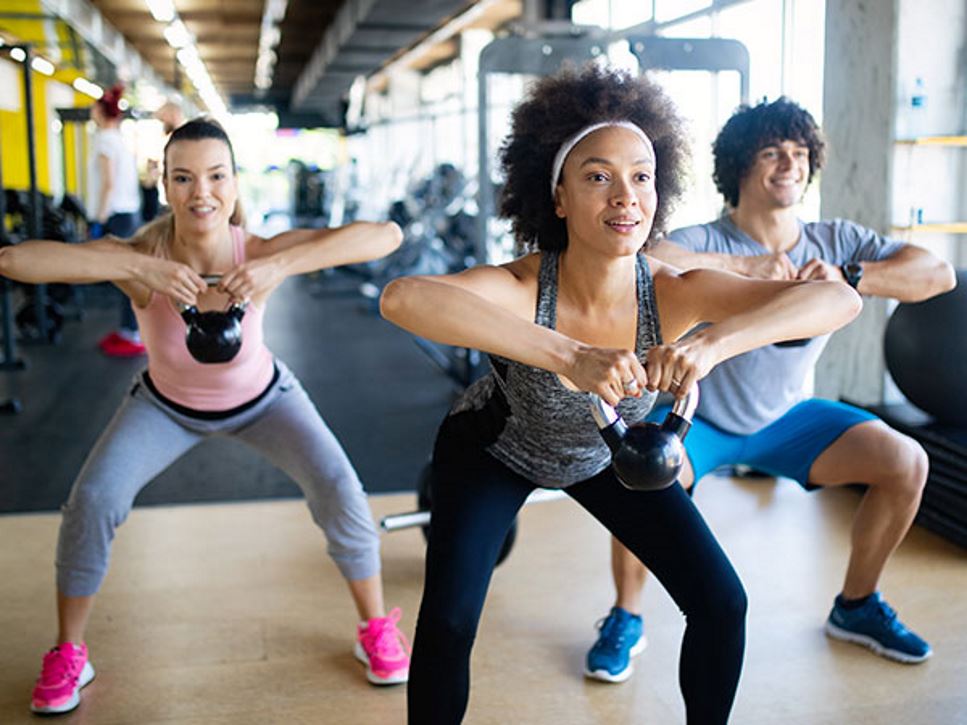If you haven't yet made physical activity a habit, your 30s are a good time to start. Fitness, along with proper nutrition, is important for a healthy lifestyle. Being fit may help increase energy, maintain physical functionality and may prevent or minimize complications from chronic diseases.
Why Be Fit?
There are many health benefits associated with being physically active. To name a few:
- Decreased risk of Type 2 diabetes
- Decreased risk of hypertension (or high blood pressure)
- Improved cholesterol levels
- Improved mental health
- Better quality sleep
- Reduced anxiety
- Improved bone health
- Decreased risk of all-cause mortality
Motivation Is Key
You may need some encouragement when it comes to being active. What is going to motivate you to move? Come up with a few reasons why being active will help create a healthier you, such as:
- Being a positive role model for kids
- Decreasing the risk of developing high blood pressure or Type 2 diabetes
- Maintaining a healthy weight
How Much Is Enough?
In 2018, the U.S. Department of Health and Human Services released the second edition of the Physical Activity Guidelines for Americans. Key guidelines encourage everyone to “move more and sit less.” Any physical activity is better than none but the following goals are recommended for adults:
- Do at least 2½ hours of moderate-intensity or 1¼ hours of vigorous-intensity aerobic physical activity a week.
- Include strength training using all of the major muscle groups two days a week or more.
- For additional health benefits, increase moderate-intensity aerobic physical activity to five hours a week.
Healthy pregnant women should get at least 2½ hours of moderate-intensity aerobic physical activity spread throughout the week. Women who are used to vigorous-intensity aerobic physical activity are often able to continue physical activity during pregnancy, however, they should discuss this with their doctor first.
Does Walking Count?
Walking slowly is considered a light-intensity activity. Brisk walking is an example of a moderate-intensity activity — you should be able to walk and talk but not sing. With vigorous-intensity physical activity, you can only say a few words without needing to catch your breath. Regardless of the intensity, the goal is to be more active throughout the day!
No More Excuses
Maybe you have heard that being fit is important, but perhaps you have been busy starting a career or raising a family. If physical activity hasn't been a priority, start now by setting reasonable goals. Begin with activities you enjoy and slowly build up your endurance. To keep on track, record any physical activity you do in a journal.
Life is full of excuses, but physical activity should be an essential part of your life. Being fit will help you stay young on the inside and out, and it can help you breeze through the next few decades feeling strong and healthy.
References
Find a Nutrition Expert
Looking for credible nutrition information and recommendations? The Academy of Nutrition and Dietetics' network of credentialed food and nutrition practitioners are ready to help!

